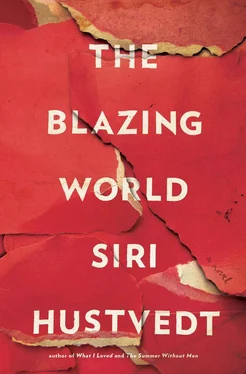E isolates the dream elements to propose possible soulful interpretations
Place: E’s old bed in the old apartment, where E spent his childhood and adolescence, and which he visited during his early adulthood. Domain of mostly silent parental struggles.
Strangling bedsheets: Why strangling? Possible reference to a sense of oppression felt by E in household while growing up and to E’s childhood tantrums and, later, his panics, during which he felt he could not breathe. Every once in a while, E still feels threat of breathlessness and carries around two lorazepam in his wallet just in case.
No. 2 filter: ambiguous. In life E uses a no. 4 filter for his coffee machine. Why the number two? E thinks of doubles, twins, reflections, and binaries of all kinds. He hates binary thinking, the world in pairs. Is this a reference to father and mother in residence at 1185 Park Avenue? E begins to feel the dream in his bones. He has read about sleep research and how the scientists wake up their “subjects” for their dream reports. “I dreamed of no. 2 coffee filters,” he imagines himself telling a man in a white coat. And then he thinks to himself, coffee and tea, two for tea and you for me. He remembers A at the Neo-Situationist evening with her serious face and her presentation, “Technoculture Capitalism, Its New Currency, Information, and Strategies for Resistance Through Subvertising.” He had talked to her for half an hour and the words were in his head, “Would you like to have a coffee or tea sometime?” But his mouth refused to move. Coffee. Tea. Two. The silences happen often. His disappointment in himself is acute.
Filth in cupboard like a face: chaos, shit, unorganized material. E admits that he frequently finds himself in a state of dire confusion about the way forward in literature, in politics, in love. He writes every day, slowly, slowly. The sentences crawl out of him. He has tried automatic writing. He has tried acrostics, lists, even villanelles. Now dream narratives. He is reading Georges Perec’s Life: A User’s Manual . E wants to be Georges Perec. He would like to write a book without the letter e or a or t . He has tried, but it is maddeningly difficult. Still, he needs forms. On some days he does not leave the apartment. He writes and then he reads and then he gets confused, and he makes charts of no interest whatsoever. Maybe it is his own crappy moldering face he does not recognize in the cupboard.
Suit of clothes suspended in midair: E owns one suit and one tie. The suit pants are now too short for him. E’s father wore a suit and tie to work every day. He had rows of suits in his closet, where E used to hide under the leather belts because they smelled good. E’s father was often away. E hid in his father’s closet and inhaled its father smell and played with his men on the cool wood floor. He always kept the light on. He hated closets when he was outside them, so his strategy had been to go inside them. Inside, the closet changed. It was comfortable. Sometimes he would stand up and rub the suit fabrics a little, not too much because he thought he would leave marks or wear them out with his fingers, but some of the hairier materials he hated and would not touch. He called them his touch enemies. E can feel the back of his head against the closet wall. He remembers his hot, bad feelings, his lacerating anger, when he thought about school. E remembers pressing his head into his mother’s stomach as hard as he could to relieve the pressure. She let him do it.
Suit of clothes suspended in midair outside kitchen window: E’s father suffered a stroke at the table in the breakfast nook at 1185 Park Avenue as he sat near the window. Therefore, E has dreamed about the window and the suit flying outside it, dreamed of a bodiless man in exile. Death is exile from the body, exile from everything, E thinks. Neither E, nor his sister, M, were present when their father was struck down by the cerebrovascular accident. Their mother was present. She rode in the ambulance. When E and M arrived at Emergency on Sixty-eighth Street, the emergency was over. Emergency ends with either life or death. Schrödinger’s cat doesn’t exist in the world E knows. Life and death do not coexist in a single body. E remembers the words aneurismal subarachnoid hemorrhage . He remembers the tan-colored plastic seat in the waiting room and the zigzag ink mark beside his thigh as he sat on it. He remembers he did not want anyone to touch him.
Flying due east: Awake, E solves this puzzle easily. Thailand is an eastern country. E’s father’s maternal roots are due east. The legs point toward his grandmother, toward Khun Ya, with her bright red, hard fingernails and big smile.
E rescues clothes that seem to contain someone, but that someone cannot be seen: E’s dead father cannot be seen anymore. Does the son want to rescue what is left of his father that is in danger of being blown away? What would that be? E has rejected his father’s money except for a modest annual amount, but he knows he is a hypocrite. He should become a welder and write at night. He has looked into learning to weld. He even received brochures in the mail from Apex Technical School, but he never pursued the training. He is a soft, coddled philistine who will never become a welder. Does he in fact want to hold on to his father’s legacy, to his money, suits, art collection, and every other bourgeois trap imaginable? E did not cry after his father died. He has wondered many times why he did not cry. He remembers the clothes in his arms in the dream and the feelings of relief, sadness, and pity that were far stronger in the land of Nod than in the land of Awake.
Sophus Bugge in suit jacket pocket: Objects hide in pockets. All that can be seen from the outside is a bulge or a lump. In the dream E did not make anything of the name, but awake, he remembers that Sophus Bugge was a nineteenth-century Norwegian philologist famous for a critical edition of the Poetic Edda , a book of thirteenth-century heroic and mythological poems E read years ago because he discovered the book had influenced his childhood writer-hero, Tolkien. And the author of the Edda ? Anonymous. Unknown. No name. E returns to Bugge. He was an avid collector of Norwegian folk songs and the scholar who deciphered Elder Futhark. E likes the sound of Elder Futhark. Lewis Carroll might have invented those words, but they are not from “Jabberwocky.” What does Sophus Bugge have to do with anything? Why is Bugge’s name in the paternal suit pocket? And now, as he writes, the solution to the riddle jumps into his mind. Elder Futhark is a form of runic script: runes, runic, and the person Rune, E’s mother’s front for her last project. E says “Eureka” aloud. E feels triumph. He is exceedingly proud of his dreaming self’s cleverness. Isn’t his mother’s maze called Beneath ? Underneath, beneath, hidden in a suit pocket. Harriet Burden lies beneath Rune, who was lying beneath Sophus Bugge. Has he found his mother in his father’s pocket?
E does not know what this could mean. He recognizes that interpretation is always multiple. He knows that associations can lead a person down many paths. There can be no single reading of a dream. He does not bother to decode the ruffles. He is still annoyed with them. They persist as an irritant. E sees the sheer, silky material moving under him, and he feels disgust, as if the two worlds of sleeping and waking have run into each other.
Harriet Burden Notebook D

February 7, 2003
Читать дальше













